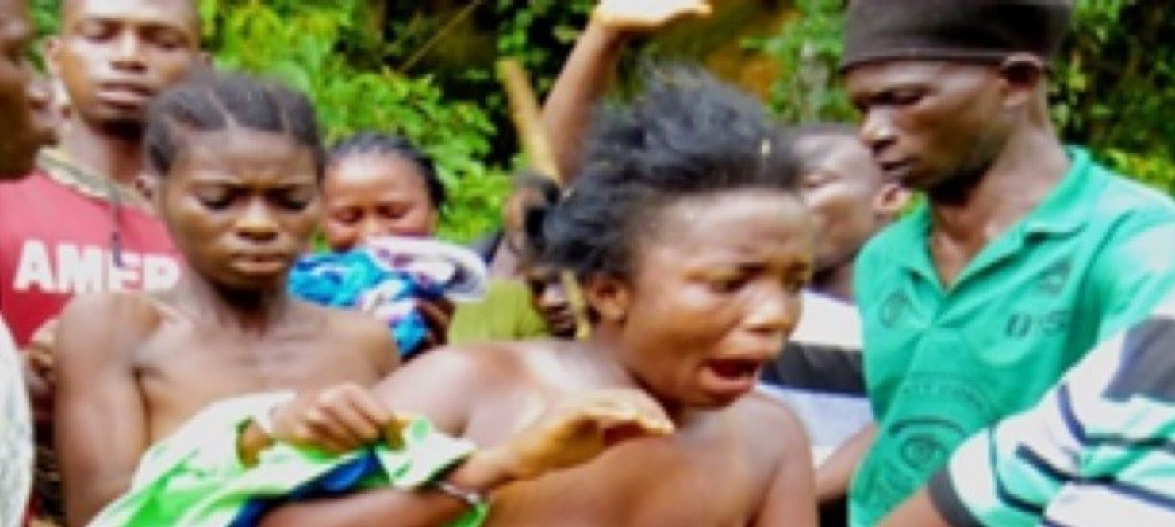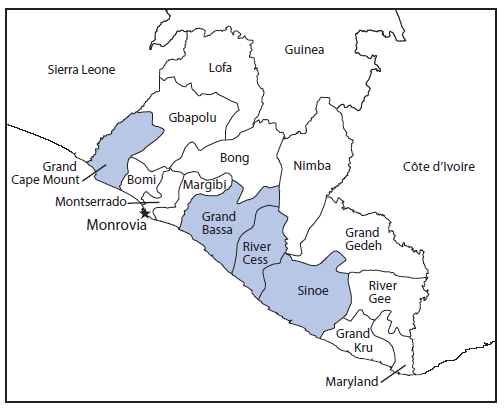The article below – published by Liberia’s leading newspaper FrontPageAfrica – reports that on August 30, the Trial Jury of the Grand Bassa County Circuit Court unanimously found seven defendants guilty in the Sinoe murder case. This is not consistent with an earlier article, published by The Bush Chicken – another well known Liberian newspaper – which reported that 10 of the 12 jurors voted for a guilty verdict, while 2 abstained (see my September 2 posting).
Judge Joe Barkon of the 2nd Judicial Circuit Court in Grand Bassa County is to hand down final ruling in the Sinoe County murder case on Monday, September 9.
To be continued (webmaster FVDK).

Published: September 3, 2019
By: Kennedy L. Yangian – FrontPageAfrica
Monrovia – Court sources at the 2nd Judicial Circuit Court in Grand Bassa County, have disclosed that Judge Joe Barkon is to hand down final ruling in the Sinoe County gang rape and murder case, on Monday, September 9.
The judge’s ruling will be followed by the sentencing of the seven defendants found guilty of murder and gang rape in
Trial Jury of the Grand Bassa County Circuit Court Friday, August 30, unanimously found the defendants guilty in the murder and gang-rape case.
This comes after more than two weeks of legal battle between government lawyers, led by Cllr. Wesseh Alphonsus Wesseh, Assistant Justice Minister for Litigation, and Defense lawyers, led by Cllr. Paul Philip Jarvan.
Judge Barkon reserved ruling into the case last Friday, August 30, in line with the law that provides for time in sentencing of Defendants who are found guilty.
The seven guilty defendants are Moses Solo, Ellis Karpeh, Sylvester Chardy, Swen Kelgbeh, Teah Gmanwolou, Victor Solo and Pyne Nyene. They will be sentenced for Murder, Gang Rape, aggravated Assault, Criminal Conspiracy and Facilitation.
The defendants were among 10 persons who were arrested by state security and indicted in Greenville City, Sinoe County in 2018 after they accused three ladies, Williete Nyenwlah, Angeline Saydee and Florence Tarklay, for being responsible for the disappearance of a four-year-old child in Johnny Town, Normorpoe District, Sinoe County on December 12, 2018.
The three women were stripped naked and paraded publicly in the town and then taken to the society bush where they were allegedly tortured and sexually abused with the men inserting sticks into their private parts resulting to the death of one them, Williete, who was buried secretly in a swampland.
The case was to be heard in Greenville Sinoe County but state prosecutors requested for a change of venue to the 2nd Judicial Circuit Court in Grand Bassa County based on what the prosecutors termed as due to local prejudice.
As the case was called for trial this August 2019 Term and before the reading of the indictment to the defendants, Cllr. Wesseh A. Wesseh, Assistant Justice Minister for Litigation, entered a plea of Nolle Prosequoi (free) in favor of three co-defendants, Anthony Karmon Marshall Gballa and Shelton Kelgbeh for lack of sufficient evidence to prosecute them while the rest of the defendants were arraigned and pleaded not guilty to the multiple charges.
During the trial, the state produced five general witnesses including the two survivors and three rebuttal witnesses.
While on the witness stand, two of the five co-defendants, Moses Solo and Alex Karpeh, described themselves as the “devil’s spokesperson” and the town crier of Jonny Town, respectively, though they denied the allegations but admitted been present and member of the country society that took custody of the victims.
The two co-defendants said the deceased died after she was questioned by the country devil, who shouted at her and she allegedly dropped dead after she was transformed into a dragon and that her left eye was removed and given to her father who according to the defendants turned her over to the society people or country devil.
However, the other five co-defendants denied been members of the secret society and that they were not in Johnny Town when the incident occurred and that they were arrested based on mistaken identity by the Liberia National Police.
Their testimonies prompted the state lawyers to introduce the father of the deceased as one of its three rebuttal witnesses who denied been the head of the Zoe people and that it was him who turned his daughter over to the country devil to be penalized for been a “witch.”
During the final legal argument, state lawyers argued that the defendants were under obligation to have brought in witnesses to prove their defense that they were arrested based on mistaken identity; but they miserably fail to do same while the Defense lawyer, Cllr. Paul Jarvan, counter argued that the state did not prove its allegation against the defendants.
The other defendants, who claimed that they were not in the town of the incident, did not produce witnesses to testify that they were not in the town when the incident occurred.
Source: Liberia: Court to Sentence 7 Defendants Found Guilty in Sinoe County Murder, Rape Case

